
WHO has developed a dashboard for Novel coronavirus (2019-nCoV) with the number of confirmed cases globally, which includes cases in China by provinces, regions and cities, as well as confirmed cases outside China by country. HIGHLIGHTS No new countries reported cases of 2019-nCoV in the past 24 hours. The infection prevention and control (IPC) global network is convened through weekly teleconferences with international IPC experts to discuss technical aspects of IPC measures, share epidemiological updates and experiences regarding the IPC measures put in place in affected countries. In consultation with the global IPC expert network, WHO has released three key IPC interim guidance materials on IPC measures during health care and home care, as well as advice on the use of masks in various settings. RECOMMENDATIONS AND ADVICE FOR THE PUBLIC During previous outbreaks due to other coronavirus (Middle-East Respiratory Syndrome (MERS) and Severe Acute Respiratory Syndrome (SARS), human-to-human transmission occurred through droplets, contact and fomites, suggesting that the transmission mode of the 2019-nCoV can be similar. The basic principles to reduce the general risk of transmission of acute respiratory infections include the following: - Avoiding close contact with people suffering from acute respiratory infections. - Frequent hand-washing, especially after direct contact with ill people or their environment. - Avoiding unprotected contact with farm or wild animals. - People with symptoms of acute respiratory infection should practice cough etiquette (maintain distance, coverncoughs - and sneezes with disposable tissues or clothing, and wash hands). - Within healthcare facilities, enhance standard infection prevention and control practices in hospitals, especially in emergency departments. - WHO does not recommend any specific health measures for travellers. In case of symptoms suggestive of respiratory illness either during or after travel, travellers are encouraged to seek medical attention and share their travel history with their healthcare provider.
Create: Feb 9, 2020 Edit: Feb 9, 2020 International News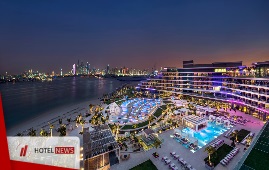
Marriott International announced it signed a record number of rooms in 2019, pushing its global pipeline to approximately 515,000 rooms as of year-end 2019 for the first time in the company’s history. The company signed 815 agreements, representing more than 136,000 rooms, marking the seventh consecutive year of record-breaking volume of organic rooms signings. Growth was fueled by unprecedented levels of organic rooms signed in each of the company’s international regions. During 2019, the company added 516 properties with more than 78,000 rooms in 60 countries and territories – an average of one new property every 17 hours. “With growth and loyalty as the cornerstones of our company’s success, our unrivaled 2019 signings illustrate our winning strategy, which combines leading brands, powerful business platforms and an enduring focus on our associates,” said Tony Capuano, Group President, Global Development, Design and Operations Services, Marriott International. “We continue to drive value for our owners with quality branding options for both property conversions and new builds, backed by our leading business support systems and loyalty platform. By staying true to our growth philosophy and continuously responding to the evolving preferences and lifestyles of travelers, we are poised for a successful 2020 and beyond.” At the end of 2019, Marriott International’s worldwide system consisted of more than 7,300 properties and roughly 1.38 million rooms in 134 countries and territories. More than half of the company’s record global development pipeline is located outside North America. “With 141 million Marriott Bonvoy members who increasingly crave travel to new cities and unique experiences around the world, a record-breaking year of deals means new, exciting properties are coming for travelers worldwide,” said Stephanie Linnartz, Group President, Consumer Operations, Technology & Emerging Businesses, Marriott International. “Our stellar growth results prove that our broad brand portfolio and platforms are resonating with owners and developers, as well as with customers.” Record-setting year for growth in valuable international markets In 2019, 53 percent of the company’s signed rooms were outside North America with record-breaking organic volumes in the company’s Asia Pacific (38,000 rooms), Europe (17,000 rooms), Caribbean and Latin America (more than 9,000 rooms), and Middle East and Africa (8,000 rooms) regions. Additionally, in 2019, Marriott International debuted its first hotels in four additional countries – Cyprus, Moldova, Kyrgyzstan and Latvia. Company extends its lead in luxury Marriott International did a record-breaking number of deals for its global luxury hotel brands, bolstering its lead in this high-value segment. In 2019, the company signed 42 luxury projects in 27 countries and territories, while opening or converting 34 properties such as The St. Regis Venice, W Dubai – The Palm, The West Hollywood EDITION and The Ritz-Carlton, Pune. As the company focuses on expanding its leading luxury footprint, it is revitalizing W Hotels. Last year, the company purchased the W New York – Union Square, with plans to transform the property into a showcase for the brand’s future look. Successful all-inclusive launch Last August, Marriott launched its all-inclusive platform to bring its brands, scale and trusted service to this growing, global vacation segment. Less than six months after its launch, the company has signed seven management and franchise agreements for all-inclusive properties representing nearly 3,200 rooms. Among the all-inclusive projects in development are an 800-room Marriott Hotels resort in Jamaica and a 240-room Ritz-Carlton resort in Mexico. The company last year also completed its acquisition of Elegant Hotels Group, which consists of seven hotels and 588 rooms located on the picturesque island of Barbados. Affordable lifestyle hotel brands buoy company growth Catering to the next generation of travelers, the company’s AC by Marriott, Aloft and Moxy brands opened nearly 10,000 rooms in 2019. Combined, these brands represent more than 65,000 open rooms in 44 countries and territories, including new hotels in Greece, Ireland, Jamaica, Latvia, Nepal and Switzerland. The company signed nearly 24,000 rooms across the AC by Marriott, Moxy and Aloft brands during the year – with record room signings for both AC by Marriott and Moxy.
Create: Feb 9, 2020 Edit: Feb 9, 2020 International News
Anticipated openings embody the company’s commitment to setting the highest standards for guest experiences in its growing global portfolio. Four Seasons Hotels and Resorts, the world’s leading luxury hospitality company, continues to expand its global portfolio with strategic openings of new hotels, resorts and branded private residences in the world’s most desirable locations. “An unwavering commitment to service and quality, a strong operating model and alignment with hotel owners who share our vision places Four Seasons in an enviable market position as we continue to grow our portfolio and strengthen our global development pipeline,” says John Davison, President and Chief Executive Officer, Four Seasons Hotels and Resorts. “As we begin a new decade, we continue to elevate the experience for our guests and enhance our product offering, affirming our passionate dedication to excellence and the industry-leading innovation that has defined our brand for nearly 60 years.” Working in concert with its partners, each new development authentically reflects the character of the destination, envisioning new ways for travellers as well as local residents to experience the world of Four Seasons. Recent innovations have included the company’s first standalone Private Residences, fully serviced by Four Seasons, in London at Twenty Grosvenor Square; a technology-led development with Comcast in Philadelphia; the Athenian riviera conversion of the iconic Four Seasons Astir Palace Hotel Athens; and the company’s first all-inclusive wellness retreat in Hawaii. Soon, having just opened its collection of traditional chalets at the foot of the Mont d’Arbois slopes with Les Chalets du Mont d’Arbois, Megève, the company that also introduced the first private jet experience will debut its first resort with an onsite winery in Napa Valley. Planned Openings in 2020 Six new openings are anticipated for 2020, including the return of Four Seasons to Bangkok with the glorious new Jean-Michel Gathy-designed landmark along the Chao Phraya River, debuting with nearly 300 stunning guest rooms and more than 350 beautifully appointed Private Residences. Also opening in the Asia-Pacific region early in the year is a third address in Japan, in the Otemachi area of Tokyo facing the Imperial Palace Gardens. In Europe, Four Seasons will debut in Spain for the first time with a new hotel in central Madrid, an assembly of several historic buildings now fully restored and reimagined, and highlighted by a rooftop restaurant by three Michelin-starred Spanish celebrity chef Dani García. Long established as the premier luxury hospitality brand in California with seven existing locations, Four Seasons continues to expand its presence in the northern part of the state with the spring opening of its second hotel in San Francisco, a soaring building in the Embarcadero district. Also scheduled for 2020 is the highly anticipated opening of a Four Seasons resort in Napa Valley, including a unique collection of Private Residences as well as Four Seasons first on-property winery in partnership with acclaimed winemaker Thomas Rivers Brown. Also in the United States, a recently announced hotel in New Orleans is expected to open in late 2020 in the city’s historic World Trade Center. 2019 Highlights Planned openings for 2020 follow an exciting year as Four Seasons celebrated a significant number of new openings around the world in 2019, including its first entry into Greece with the rebirth of the legendary Astir Palace Hotel in Athens; and the company’s return to Montreal with a stunning and sleek new hotel in the heart of the city’s Golden Mile, featuring the opening of the restaurant MARCUS with celebrity chef Marcus Samuelsson. Additional openings included a new hotel in the Garden City of Bengaluru, its second in India; the return of the brand to Philadelphia (located within the Comcast Center, the city’s tallest building) as well as a second hotel in Boston at One Dalton Street; a third address in Mexico, this time on the pristine beaches of the East Cape of Los Cabos; the company’s first all-inclusive wellness retreat in the fully refurbished Lodge at Koele on the Hawaiian Island of Lanai; and the completion of its full suite of historic chalet offerings in the French Alpine community of Megève. Looking Further Ahead In addition to announcing new properties in San Francisco and New Orleans, Four Seasons also unveiled plans for new hotels in Okinawa, Japan; Nashville and Minneapolis, USA; Cartagena, Colombia; and a second resort in Cabo del Sol, Mexico. The company also previously announced new Four Seasons projects in Dalian, China; Makkah, Saudi Arabia; Hanoi, Vietnam; and Caye Chapel, Belize. Also in 2019, Four Seasons announced plans for a new, fully customised Four Seasons Private Jet that will continue to take luxury travel to new heights as it continues the journey first introduced in 2015. A Growing Residential Portfolio Building upon Four Seasons 35-year history in branded residential following the opening of its first Private Residence in 1985, the company continues to strategically enhance its portfolio of exclusive Private Residences in markets around the world.
Create: Feb 9, 2020 Edit: Feb 9, 2020 International News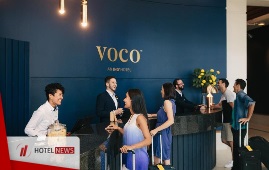
nterContinental Hotels Group has signed voco™ The Bank, Rosebank in South Africa in partnership with Valor Hospitality Partners Africa. Last year, IHG announced the signing of a Master Development Agreement (MDA) with Valor Hospitality Partners Africa to roll out multiple franchise hotels over the next 10 years, across IHG’s portfolio of brands in midscale, upscale and luxury segments. This is the first signing under the MDA and adds to IHG’s growing pipeline in the Middle East and Africa whilst strengthens the growth of company’s new upscale brand, voco in the region. voco, combines the informality and charm of an individual hotel with the quality and reassurance of a global and respected brand. The brand allows guests to enjoy an upscale experience with the freshness of a unique, independent hotel under a name they can trust. Since being launched globally just over a year ago, voco has enjoyed rapid growth with multiple signings across the Europe, Middle East, Africa and Asia (EMEAA), and signing of voco The Bank, Rosebank marks the brand’s debut in the African continent. A new built property, voco The Bank, Rosebank, will open its doors to guests in 2020 and feature 131, well-designed rooms. Reflecting brand’s unstuffy service style, the hotel will welcome guests with little personal touches and offer a memorable stay experience. Located in Rosebank, a cosmopolitan commercial and residential suburb close to central Johannesburg, the hotel will provide easy access to all key business districts and directly links into the Rosebank Mall and pedestrian precinct, and is located at a convenient distance of 19kms from the city airport, (Gautrain Metro station is directly under the Hotel). The hotel will feature an expansive dining facility which will include a two-level restaurant, a lounge and bar. Catering to the needs of the corporate guests, the hotel will feature 3 meeting rooms, accommodating approximately 80 people. Speaking on the announcement, Pascal Gauvin, Managing Director, India, Middle East and Africa, IHG said: “We are pleased to announce the first hotel under our agreement with Valor Hospitality Partners Africa and debut our newest upscale brand voco, in the African continent. Receiving immense interest from owners and partners, voco has gained tremendous momentum in the EMEAA region, and we are excited to be expanding the brand footprint further in the region. True to the brand promise, the new hotel will offer a unique hospitality experience to guests, and will cater to the increasing number of domestic and international travellers looking for quality branded accommodation in South Africa. He added: we look forward to signing more hotels under our agreement with our valued, long-term partner, Valor Hospitality Partners Africa and expand our offering across key markets in the continent.” Euan McGlashan, Global CEO and Founder of Valor Hospitality Partners added: “We are excited to announce our first hotel with IHG on the African continent. voco, IHG’s latest upscale brand is a unique offering and we have received significant interest from the owner community in Africa. In partnership with IHG, we look forward to developing this distinct hotel with an individual character, to welcome leisure and business guests visiting South Africa and offering them a dependable upscale experience. We are also confident that the hotel will benefit from the strength and scale of IHG’s global systems, best in class technology and capabilities and the world’s largest loyalty programme – IHG Rewards Club.”
Create: Feb 8, 2020 Edit: Feb 8, 2020 International News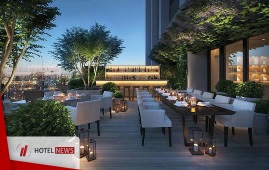
Ian Schrager and Marriott International‘s EDITION brand will open three new hotels this year, taking its sophisticated, minimalist-chic approach to luxury to Japan, Iceland and Dubai. Each EDITION is designed to feel exclusive to the city in which it is located. “All of the EDITION hotels are unique, original and one of a kind, embedded with a sense of time and place,” Schrager said in a statement. EDITION Hotels expects to open its first property in Japan with The Tokyo EDITION Toranomon, launching mid-2020. The 205-room property will house four food and beverage outlets, dedicated meeting and events spaces, a swimming pool, a fitness center and a spa, as well as EDITION’s much-loved Punch Room cocktail bar. Located in Tokyo’s upmarket Toranomon neighborhood, the hotel is expected to offer easy access to some of Tokyo’s most iconic sites, including the Tokyo Tower and Tsukiji fish market. Later in the year, The Reykjavik EDITION in Iceland will debut in the city’s downtown area. Adjacent to the prominent Harpa Concert Hall, the hotel is situated in both a vibrant and scenic part of Iceland’s historical capital, Marriott said. The hotel’s 250 rooms and suites will be complemented with a private rooftop, nightlife space and ballroom. In addition, the hotel is expected to offer guests and locals a diverse culinary offering with three restaurants and a café. EDITION will also expand its footprint in the Middle East, with the opening of The Dubai EDITION in late 2020, the second hotel in the UAE following last year’s launch of The Abu Dhabi EDITION. The property is slated to open in downtown Dubai, opposite the world-famous Dubai Mall. Plans for the hotel call for 210 rooms and suites, along with seven restaurants, swimming pools, pool deck dining, a spa and fitness center, in addition to event spaces with multiple meeting rooms and a ballroom. Since launching the lifestyle concept in 2007, EDITION currently operates 10 hotels in New York, London, Miami Beach, West Hollywood, Barcelona, Shanghai, Sanya, Abu Dhabi and Bodrum. Marriott has another 15 hotels in EDITION’s signed development pipeline which, upon opening in coming years, should more than double the brand’s footprint.
Create: Feb 8, 2020 Edit: Feb 8, 2020 International News
Frontline Employee Training Technique 16 Ingrain the Ten Feet Rule; During new employee orientation, it must be emphasized to all new employees that they must greet guests whenever they pass within 10 feet of them. It is never acceptable to not greet a guest. If the guest is on his/her mobile phone then a smile, a nod, and a wave can serve as the greeting. Technique 17 Help Employees to Remember Guest Names; During new employee orientation, everyone should be provided with some tactics regarding how to remember repeat guests’ names. Technique 18 Offer Body Language Training; During new employee orientation, all new frontline asso- ciates should be provided training regarding how to manage their body language cues when interacting with guests. Such cues include items such as smiling, eye contact, hands in pockets, etc. Technique 19 Incorporate Surprise Stories in Shift Huddles; In every daily shift huddle, one associate should be ran- domly selected to tell the group how s/he positively surprised a guest in the past 48 hours. Technique 20 Incorporate Encounter Stories in Shift Huddles; What guest did you meet today? In every daily shift hud- dle, one associate should be randomly selected to name a guest s/he met and tell the group something about the guest such as where they are from, their family, etc. This practice in the huddle will encourage the staff to talk to the guests. Technique 21 Conduct a Core Value Rotation in Shift Huddles; Every hotel should have between 8–10 core values that define the organizational culture. At the end of each daily shift huddle, one of the core values should be discussed so that each one is covered in an 8–10 day rotation. Technique 22 Conduct a Core Value Rotation in Shift Huddles; Every hotel should have between 8–10 core values that define the organizational culture. At the end of each daily shift huddle, one of the core values should be discussed so that each one is covered in an 8–10 day rotation. Technique 23 Use Foreign Language Greetings When Appropriate; In hotel properties with an international clientele, the front desk agents should know greetings in various languages and use them when appropriate. Technique 24 Ingrain the Drama Metaphor; All associates should be taught that they are on-stage whenever a guest can see or hear him/her. Such on-stage behavior applies to associates regardless of whether or not they are clocked-in for work. In other words, a guest perceives a uniformed employee as a representative of the hotel whether the employee has begun his/her shift or not. Technique 25 Train the ‘Again’ Effect; If an associate recognizes a guest as being a repeat patron, but cannot recall his/her name, the associate should be trained to say ‘nice to see you again.’ Inserting the word ‘again’ helps strengthen the relationship between the guest and service provider. Technique 26 Express Gratitude to Guests; A guest must feel appreciated and cannot be thanked too much. Associates should be trained to thank them for their business throughout their stay: “Thank you for staying with us”, “Thank you for dining with us”, etc. Technique 27 Teach Proper Response to ‘Thank You’; All associates should be trained to reply with ‘thank you’ when a guest says ‘thank you’. Intense competition in the hotel sector mandates that guests feel appreciated for their business. Replies to ‘thank you’ such as ‘no problem’ do not communi- cate appreciation or leave a lasting impression. Technique 28 Set the Tone During the Reservation Process; When a guest makes a reservation via the hotel, it creates a great opportunity to get them excited about coming to the hotel. The tone of the reservationist’s voice is very important and has the opportunity to start the exceptional guest service before they even arrive at the hotel. Reservationists should be trained to speak with enthusiasm, so the guest will feel it too. This enthusiasm sets the tone for their stay. Technique 29 Smile While on the Telephone; A mirror should be hung in front of all hotel reserva- tionists and they should be trained to check their smiles in the mirror when conversing with potential guests. Smiling changes voice tone and inflection. Technique 30 Do Not Unnecessarily Disclose Overbooking; Reservationists should be trained never to tell guests that they are overbooked on a requested night. Simply stating that the hotel is full would suffice in the conversation. Overbook- ing is viewed by many consumers as an unethical and greedy practice. Technique 31 Use Hospitable Responses to ‘How are you?’; If an associate is asked by a guest ‘how are you?’ the asso- ciate should not respond that s/he is happy because s/he is ‘off tomorrow.’ Expressing happiness because of an upcoming separation from guests does not communicate a hospitable culture. Technique 32 Tell Jokes and Riddles to Children When Appropriate; All frontline associates should be instructed to learn at least one children’s riddle that can be told when children move through their areas accompanied by their parents. A basic Internet search reveals numerous websites listing children’s jokes and riddles. Technique 33 Use Strong Telephone Greetings; An associate’s name is important to a guest. All associates should be trained to state their names when they answer the telephones in their departments. Technique 34 Make Guests the First Priority; Who’s more important, the manager or the guest? The entire management team should understand that when an employee is engaged with a guest, the guest is most important. Likewise, some employees think that “Oh there is a manager, I better acknowledge him/her.” Both management and staff should be taught to focus on the guest first. Technique 35 Check Websites for Accuracy; During off-peak times, front desk associates should be trained to routinely check websites that describe the hotel for accuracy. Are the hours of operations correct for the various departments? Are the hotel’s features and amenities listed correctly? Technique 36 Learn the Language of Guest Segments Do you know who your guests are? If you are near a uni- versity, medical center, or in a leisure market—bring in “spe- cialists” to talk and train the hotel staff on what to say, ask and explain. These specialists normally will do it free of charge. The more knowledge your staff has, the easier it is to provide a more personalized style of service. Technique 37 Eliminate Hairs; All housekeepers should be trained that the most com- mon cleanliness problem in the guestroom experience is hair in the bathroom (on floor, tub, or vanity). Technique 38 Offer Luggage Assistance; All hotel staff should be trained to spot guests carrying bags and to tell the guests that they would like to help carry the items for them. If the guests decline, the service offered signals care and attention to detail. To be continue...
Create: Feb 1, 2020 Edit: Mar 31, 2020 Hotel Management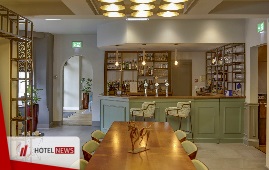
IDeaS Revenue Solutions, the world’s leading provider of revenue management software and services, announced today that Remarkable Hotels has seen a 19 percent increase in rooms revenue since implementing IDeaS Revenue Management System (RMS). Remarkable Hotels’ Best Western Plus Nottingham Westminster Hotel is a 73-room property in the central English city of Nottingham. When the growth of its newly renovated hotel began plateauing, the management was confident a sophisticated and stable RMS was the key to expanding the property’s business and profitability. Manual spreadsheets no longer working – When the uptick in average daily rate and occupancy initially gained after re-opening began to ebb away, owner/operator Al Malik realised his manual spreadsheet system for determining room rates was missing something. Seeking peer advice – Malik’s quest to boost efficiency led him to approach rival hotel operators where he discovered several were using IDeaS RMS. After receiving a demonstration of the platform’s advanced features, he knew he’d found the solution he was seeking. Remote monitoring and updating – IDeaS RMS has empowered the staff at Remarkable Hotels to make robust improvements in performance with an increase of 15 percent in overall sales, 12.5 percent occupancy and 19 percent in rooms revenue. These positive results have allowed Malik to instill a better work/life balance by providing him with the automated technology to manage his hotel remotely. Al Malik, owner/operator, Remarkable Hotels, said: “I used to spend my days buried in data and I knew that basing key pricing decisions on human intuition meant we were leaving money on the table. I knew I needed to base my business on scientific analysis—guesswork was not going to generate an effective return on my refurbishment costs. With IDeaS RMS we have now raised our rates for our peak demand days and are confident the prices reflect the local market and, in particular, what our competitors are charging. I know the system is always there in the background, automatically working for me.” Dr. Ravi Mehrotra, president, founder and chief scientist, IDeaS, said: “IDeaS RMS is not only for large hotels—in fact, the power of the system provides the tools needed for any size property to ensure increased profit margins and consistent data analysis. We are pleased to provide a game-changing system that helps Mr. Malik and Remarkable Hotels drive profitability and stay competitive.”
Create: Jan 31, 2020 Edit: Jan 31, 2020 International News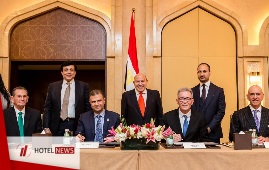
Marriott International, Inc. (NASDAQ: MAR) (www.Marriott.com) today announced that it has signed an agreement to open a St. Regis in the New Administrative Capital of Egypt, just outside of Cairo. In the second quarter of this year, The St. Regis Almasa is expected to occupy an existing luxury hotel at the entrance of the up-and-coming city that is slated to become the administrative and financial hub of Egypt. “We are delighted to be working with the National Authority for Management & Investment on this exceptional conversion opportunity to bring St. Regis to Egypt’s New Administrative Capital,” said Jerome Briet, Chief Development Officer, Middle East and Africa, Marriott International. “This signing further enhances the St. Regis brand portfolio in Middle East and Africa and underscores the tremendous momentum that our luxury brands have in the region.” Speaking on the occasion, Colonel Waleed Samy Salama, CEO, National Authority for Management & Investment commented, “The National Authority for Management and Investment is pleased to start a relationship with Marriott International. The St. Regis Almasa will be positioned as the luxury hospitality hub in the New Administrative Capital and with the largest state-of-the-art convention center in Egypt, the hotel will be the ideal host to the country’s largest events, conferences and summits. We are confident that this deal signing will play a vital role in the development of tourism in Egypt.” Also present during the signing ceremony were General Mohamed Amin Ibrahim Nasr, Advisor to the President of Egypt for Financial Affairs and Liam Brown, Group President Europe, Middle East and Africa, Marriott International. With the population of greater Cairo expected to double in the next few decades, the government in Egypt announced plans to build the New Administrative Capital. Almasa Royal Palace, which the owner has operated for the past two years, is located adjacent to a 42,000-square-foot convention center that hosts official government conventions and events, as well as official foreign presidents’ visits. The hotel consists of 270 rooms, 90 suites, 60 apartments and 14 villas. Other facilities include outdoor and indoor swimming pools, a gym, spa, club house and 20 food and beverage outlets. When it opens, The St. Regis Almasa is expected to encompass the hallmarks of the brand such as its rich traditions and rituals, and signature St. Regis Butler Service. Through a phased approach, areas across the hotel will undergo a refresh to deliver an on-brand experience in New Cairo whilst remaining open to guests.
Create: Jan 31, 2020 Edit: Jan 31, 2020 International News
